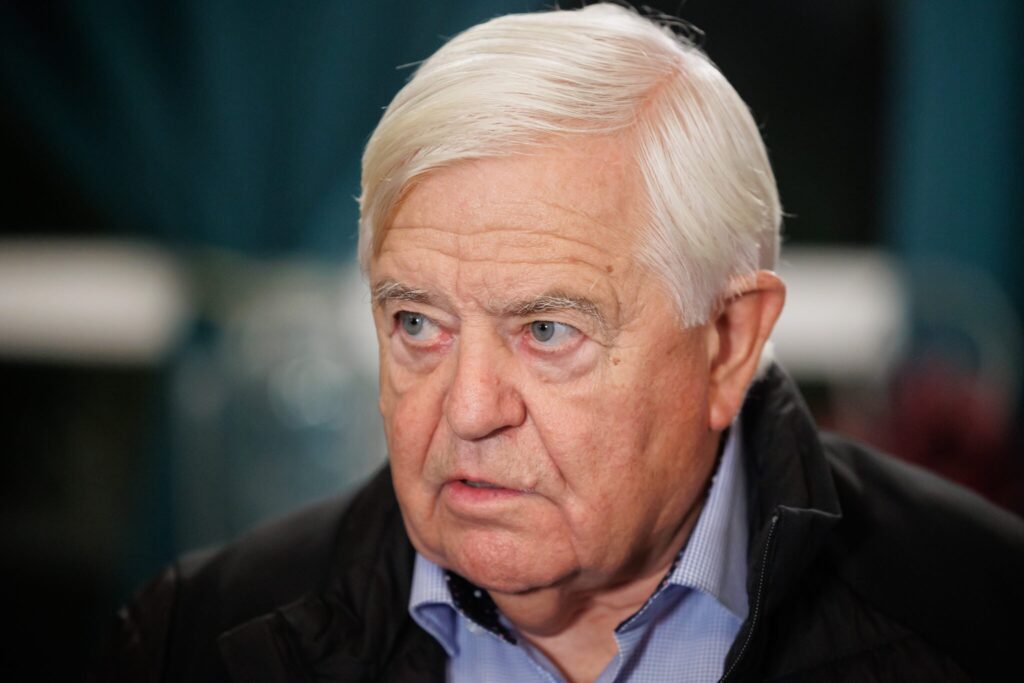Nataša Pirc Musar’s main godfather, former Communist Party leader Milan Kučan, came to her election headquarters before the election results were announced. Many analysts share the opinion that Kučan is the reason why the candidate of the parallel mechanism will not win the presidential elections.
Many media outlets have problematised the connection between the presidential candidate Anže Logar and Janez Janša. The fact that the latter came to Logar’s headquarters was even used as headline news in some media outlets, and analysts estimate that media attacks along these lines will be the main focus of the rest of the election campaign before the second round of the presidential election that will happen on the 13th of November.
But these same media outlets who cannot stop themselves from coming after Logar overlooked the arrival of the former head of the Communist Party to the headquarters of the parallel mechanism’s candidate. Namely, Milan Kučan turned up at the Russian Dacha – the lavish estate of the wealthy Musar couple. It should be noted that the economist Rado Pezdir mentioned the links between Kučan and the tycoon and bank robber Darko Horvat and also pointed out that Aleš Musar’s fortune is similarly scattered and non-transparent as Horvat’s.
The former prominent representative of the Social Democrats party (Socialni demokrati – SD) and political analyst Aljuš Pertinač tweeted that a vote for Pirc Musar is also a sign that dirty money can buy anything, including the presidency of Slovenia. He also pointed out that Kučan’s support has never produced presidential winners. Pertinač is convinced that a vote for Nataša Pirc Musar is a guarantee for Logar’s victory in the second round of the elections.
Kučan is afraid of the break-up of the coalition
But Kučan came to the Russian Dacha anyway. He also commented on the result of the election by saying that he did not see the first round of the presidential elections as a defeat for the ruling coalition. He considered it a good thing that they had agreed on a common candidate, that Brglez was not the candidate of just one party with the support of another, which he considered to be a significant, qualitative difference. He added, oddly enough, that it was important to note that both the Social Democrats and the Freedom Movement party (Gibanje Svoboda) had not had a candidate for a long time and had even said that they would not have one.
Kučan even warned against the poor results of the representatives of the government coalition, which together won less than 20 percent of the vote in Sunday’s elections. “This time lag is probably what they will have to discuss,” he pointed out. He himself is confident that the coalition will remain solid and will act as it stated in its pre-election promises – it will run the country very differently than the government before it.
Apparently, Kučan fears that the presidential elections would shake up the government. The April elections to the National Assembly are not that far in the past, and the parallel mechanism does not yet have a new face prepared for early elections.
Sara Kovač


